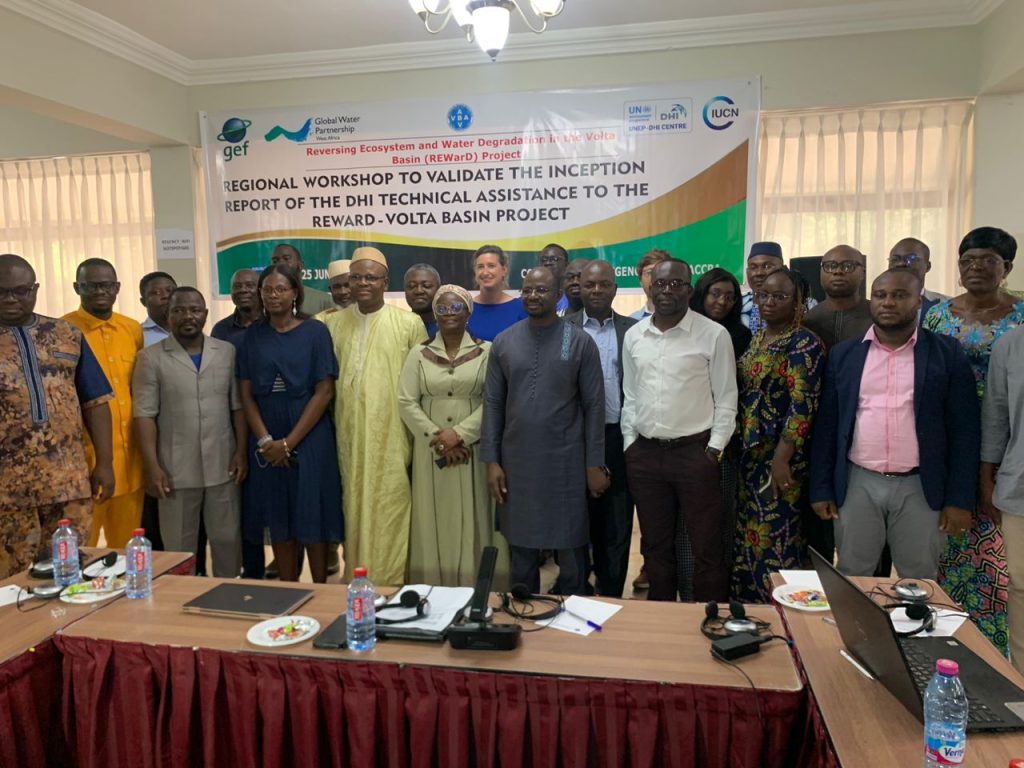By Stanley Senya
Accra, June 25, GNA – A three-day workshop to address environmental and social concerns in the Volta River Basin has opened in Accra.
The workshop is in relation to the Reversing Ecosystem and Water Degradation in the Volta Basin (REWarD) Project to validate the inception report of United Nations Environment Programme (UNEP-DHI).
Mr Armand Houanye, Executive Secretary of Global Water Partnership-West Africa (GWP-WA), told the GNA that the Water Basin was a water source for about three hundred million people in Africa.
The event was organised by the Water Resource Commission, Volta Basin Authority, Global Water Partnership-West Africa (GWP-WA) and UNEP.
The Volta River Basin consists of six African countries which are Ghana, Mail, Burkina Faso, Togo, Cote d’Ivoire and Benin.
He said there were plans and strategies which were to be implemented to improve the knowledge base and management development tools for transboundary governance.
This, he said, would improve the conservation and restoration of the ecosystem to improve livelihoods in the Basin.
“This project is also aimed to enhance the coordination and capacity for regional and international agencies and organizations in the Volta Basin,” he said.
Mr Houanye urged key institutions to prioritize the protection of our environment, especially the water resources, adding that monetization and evaluation of water resources was key to protecting it from pollution.
Dr Mawuli Lumor, Head of Planning Water Resources, Ministry of Sanitation and Water Resources, said Ghana, like many other countries, was facing several water resources management challenges mainly due to human induced environmental degradation and climate change, causing significant damage to the rivers and leading to siltation and water quality problems for downstream users.
“These resource management challenges are particularly acute in the Volta Basin,” he added.
He said the government was committed to the implementation of policies and programmes that address challenges in the water resources sector.
He said the government invested over GH¢1billion in water and sanitation projects, which had resulted in significant increase in access to water and sanitation services across the country.
“Despite these efforts, we still have a long way to go in addressing our water challenges. This is why we are so excited about the REWarD Project, which seeks to contribute to reversing ecosystem and water degradation in the Volta Basin,” he added.

Dr Lumor commended all partners, including, the International Union for Nature Conservation (IUCN), the Volta Basin Authority, Global Water Partnership-West Africa, DHI and the riparian countries for the bold initiative.
He said the inception workshop held immense significance as it marked the beginning of constructive engagements and discussion on the implementation plan for the technical assistance to be provided by UNEP-DHI to deliver some outputs of the REWarD Project.
He urged all to actively engage in the discussions and share insights and experiences to help guide the implementation of the programme and hoped that the initiative would set a precedent for effective water resource management practices across all the riparian countries.
He said the impact of their collective actions today would resonate for generations to come.
GNA